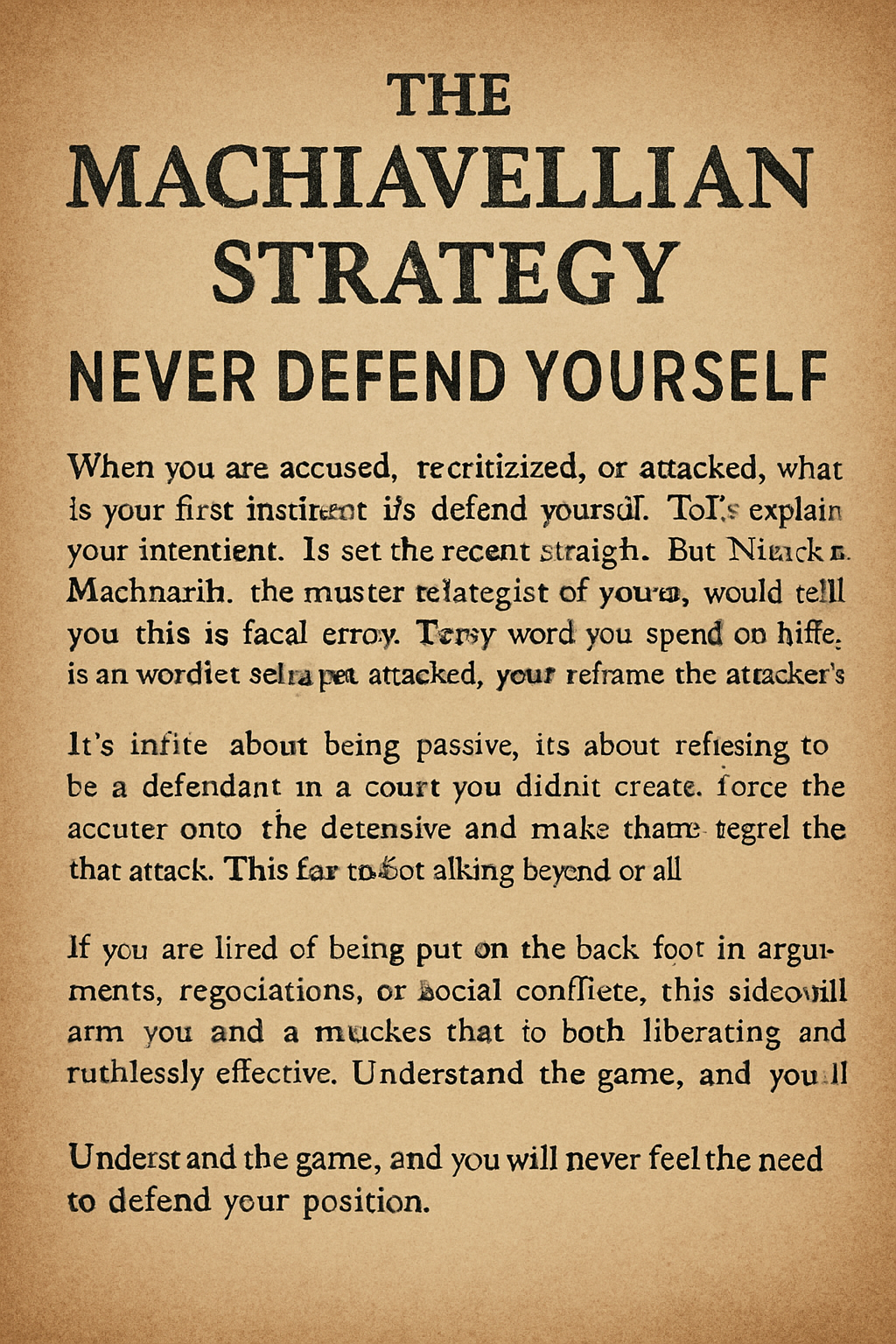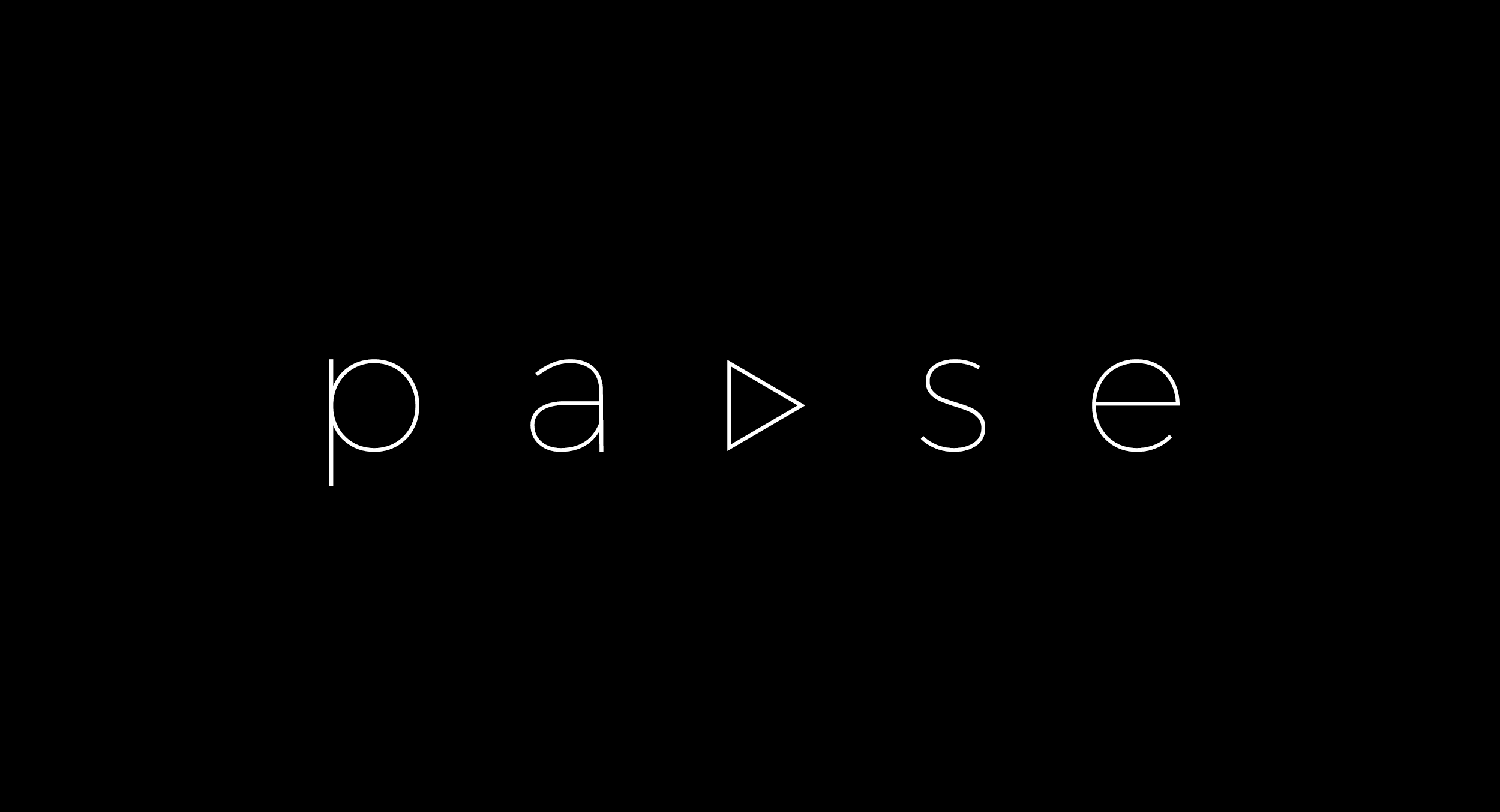Blog
- Machiavelli’s Art of Power Reversal
.
Dominance Without Defense: Machiavelli’s Art of Power Reversal
By refusing to defend, you rise above the battlefield. This is not surrender. It is psychological warfare.
Introduction: The Fatal Instinct to Explain
When accused, criticized, or challenged, the first impulse for most is defense. We clarify, justify, argue, plead for understanding. It feels human, and it is. But it’s also a mistake.
Niccolò Machiavelli would warn that the moment you defend yourself, you lose control of the frame. You validate the premise of the accusation, concede the attacker’s authority, and shift the spotlight from their aggression to your supposed guilt.
In matters of power, perception trumps truth, and power flows to those who control perception, not those who beg to be understood.
The Psychology of Not Defending
Defensiveness reveals insecurity. Even when your argument is correct, your very act of explanation tells the room that something hit its mark. In social psychology, this is known as frame submission, accepting the context laid by the attacker.
But when you don't flinch, don’t explain, and don’t react, you force the attacker into the uncomfortable spotlight of their own aggression. You make them perform their collapse.
The Strategic Shift: From Defense to Frame Control
1. Silence as a Weapon
“He who explains submits.”, Machiavelli
Silence forces your opponent to fill in the blanks. In doing so, they often overextend, appearing emotional, insecure, or petty. You, meanwhile, appear composed, mysterious, and above the noise.
Example: In a meeting, someone subtly mocks your proposal. Instead of defending it, you pause. Say nothing. The silence creates tension, not for you, but for them. The room begins to judge them, not you.
2. Cold Deflection
You don’t answer the charge. You redirect the energy.
This is the art of the verbal judo throw: making their accusation look like a symptom of their insecurity.
These are not rebuttals, they’re reframes that put your accuser on the back foot.
3. Emotional Echo: Make Them Talk to Themselves
By staying calm and unreactive, you create a vacuum. That vacuum forces your opponent to justify themselves to the group, a position of weakness.
When you don’t engage, others begin to question the accuser:
“Why are they still talking about this?”
“Why is he trying so hard to prove his point?”
“Why didn’t she respond? Maybe she knows something.”
You become unreadable, and unreadable people become feared.
Tactical Examples
In Public:
“You always act like you know everything.”
Wrong response: “That’s not true. I just think I have a good perspective.”
Strategic response: Long pause, then a gaze.
Optional remark: “You seem triggered today.”
In Personal Relationships:
“You don’t care about me.”
Wrong response: “Of course I care! Don’t say that. I’ve always, ”
Strategic response: “That’s not how I see it.” (Neutral tone, no tension)
Online Accusations:
“You’re toxic and manipulative.”
Wrong response: Essay-length rebuttal.
Strategic post:
“People always call you dangerous when they can’t control you.”
You don’t just dodge the bullet, you flip it into a branding asset.
Aura: The Final Form of Social Power
The final goal isn’t silence. It’s presence.
It’s the ability to enter a room and speak only when necessary, not because you’re passive, but because you know words are currency. And you never waste currency on cheap battles.
The one who doesn’t explain is assumed to have nothing to fear.
The one who doesn’t react is assumed to hold secrets.
The one who doesn’t respond is not empty, they are full of gravity.
Three Tools of Power Reversal
Examples of Precision Cuts:
“Noted.”
“If that’s how you see it.”
“Interesting take.”
“Time will tell.”
Each line is a period, not a comma. It ends the moment. And every closed moment is a scene you control.
Building the Fortress: The Path to Untouchability
This strategy requires discipline, not detachment. You’re not cold, you’re calculated.
Train like this:
Never rush to defend against provocation.
Let silence stretch. Let it ache.
Respond minimally, only when it reshapes the room.
Never explain what doesn’t need to be explained.
Never post what doesn’t advance your myth.
You’re not erasing yourself. You’re curating your legend.
Final Paradox: The More You Defend, The Guiltier You Appear
In modern power dynamics, from boardrooms to online discourse, the one who defends looks guilty, anxious, reactive.
The one who remains still, the one who lets others panic, commands not just respect, but mystique.
The Machiavellian Rule:
“Never defend. Redefine.”
Let others waste their power proving.
Let others drown in the need to be understood.
You? You speak less, mean more, and walk through storms untouched.
Because when you stop defending...
you become untouchable.




No Comments
Signup or login to leave a comment